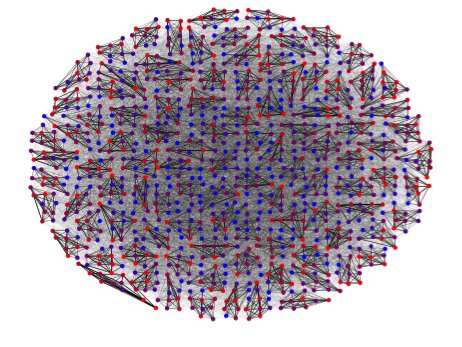It's (not) complicated: 'Friends of friends' relationships may be simpler than they seem

Not only are immediate friendships an important aspect of our life, but so are our extended acquaintances and friends' of friends connections, according to new Oxford University research. The findings shed light on how social networks can evolve, by showing that complex social patterns observed across the animal kingdom may be simpler than they appear.
These relationships are known as 'indirect social connections," and show where each individual is positioned within the overall social network.
Previous studies have suggested that people can track the social network positions of others, and that indirect social connections may influence our health, wealth, and survival. These friend-of-a-friend links also appear to be important in the animal world, such as to the survival of dolphins in their early years of life, or the reproductive success of birds, monkeys and apes. These publications have served as evidence of people's ability to assess the social connections of others and base their own behaviour on this.
However, the new study published today in Proceedings of the Royal Society B demonstrates that very simple mechanisms can underpin these relatively complicated social dynamics. Computer simulations were used to create social networks from virtual individuals that only differed according to a single simple behaviour, such as their preferred group size or how often they interacted with their group members. The results showed that these simple tendencies created complex societies and determined the number and type of individuals' friends-of-friends, even more so than they determined individuals' own friends. This suggests that certain findings regarding the wider social network positions of humans and other animals may not require any form of complex social behaviour or intelligence.
Lead author, Dr Josh Firth, a research fellow in Oxford's Department of Zoology, said: 'indirect social connections have been shown to be related to individuals' genetics, traits, and different aspects of their lives, so it was interesting to see how such findings can actually arise within very simple social systems in which no complex strategies are in play."
The study may also help explain how complex social structures can evolve by allowing natural selection to act on peoples' indirect social connections.
Dr. Firth added: "I'm often asked how an animal's own genetics could possibly determine the social connections of its associates and how these aspects of individuals' social behaviour could ever be subject to natural selection.
"This research provides an intuitive explanation for this. If an individual's friends-of-friends connections are actually underpinned by a simple behaviour, then it may be this behaviour that is governed by their genetics. In this way, evolutionary forces could act on complex social network positions in a fairly straightforward manner."
More information: Indirectly connected: simple social differences can explain the causes and apparent consequences of complex social network positions, Proceedings of the Royal Society B, rspb.royalsocietypublishing.or … .1098/rspb.2017.1939
Journal information: Proceedings of the Royal Society B
Provided by University of Oxford





















